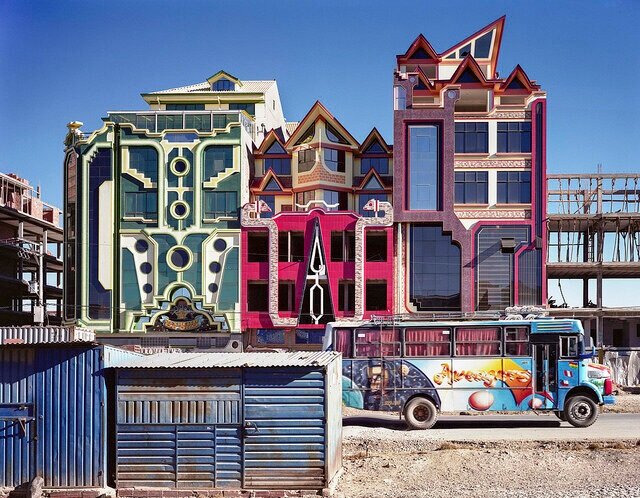
Strategy
Diversity and originality
A new breed of companies will increase the diversity and originality of ideas. Companies that communicate with the world and operate from a unique, local, culturally driven approach. Businesses that start to create from a space of intention and hope and those that are supporting what they do, feel this energy too.
The next era of business transformation means next to delivering value to customers, also being of value to employees, suppliers and the communities in which the company operates. The rules for involvement are constantly changing. Companies are much more than just what they sell, be active and visible and fight for the change that matter to the people you work with and for.
As consumers share and recycle their possessions, the demand for new products will decrease. Companies compete with millions of consumers who sell the same type of products. The new and the unused will become less attractive.
Brands have a conversation, a dialogue with their customers as they are also discerning and have useful knowledge. Communicate an idea and let people connect with it. Cultural sensitivity to the wishes and needs of a demographic means making contact with the local population and being part of the community.
01 Anti-uniformity
02 Fight for change
03 No new things
04 Having a conversation
New Normal
Roots
Simileoluwa Adebajo was homesick for food she grew up eating in Nigeria. She quit her job as a financial analyst to open the first Nigerian restaurant in San Francisco called Eko Kitchen, which she announced with a tweet.
The tweet went viral and through her tweet, Adebajo was being hailed as a trailblazer. She was doing something many in San Francisco dream of doing, quitting a well-paying day job to pursue a passion project.
Indigenous skills, stories and trades
Streetwear brand NorBlack NorWhite combines classic Indian handicraft with modern silhouettes. The brands philosophy developed from paying respect to the past, questioning the present and creating for the future.
Founders Mriga Kapadiya and Amrit Kumar grew up in Toronto, Canada before moving to Mumbai in 2009. They traveled across the country, meeting artists and communities who worked within centuries of tradition. Some of their art forms were disappearing as handicraft gave way to mass-production. NBNW was born out of a desire to maintain, reinterpret, and mashup these traditions to give them new life in a modernizing world.
Real
Independent print studio Everpress is on a mission to change the way things get made. Using the Everpress campaign builder, artists can upload a design, create custom landing and instantly sell their products to their fan base or community. Using the crowdfunding model, preorders are collected for a limited period and it is only once the campaign ends that the items are made to order.
Everpress handles all the production logistics and delivers directly to buyers around the world. Everpress charges a base fee that covers the cost of the garments, printing, packing packing and delivery of each product. The artists chooses the sales price and keeps 100% of the profits.
Pushing culture
Nigeria is not associated with skate culture but thanks to Wafflesncream it is alive and thriving. Wafflesncream is a Nigerian skate/ streetwear brand that sell their own boards, patterned wheels, and gear, next to that they have made a skate film entitled Jide, built their own quarter pipe ramp, and set up a skate shop on Victoria Island in Lagos. They are now building the first skate park in West Africa.
Rather than label their collections Spring/Summer, they named it Rainy/Wet to represent the climate in Nigeria. Their biggest source of inspiration came from the fabrics worn by their parents and grandparents at traditional events, and they have adapted it to represent their love for skating. Wafflesncream are proud of the fact that society is beginning to accept them and the youth in Nigeria are now more active and confident skaters.
Retail
Former garages become modern flea markets selling cultural items from around the world. Shops become cabinets of curiosities with mixes of vintage and local designers on offer. Eccentric stores with unique products that belong to the history of a place.
The interior of stores is one of fluidity and can be changed at any time, including by the visitor. The construction is loose, accidentally assembled with, for example, stacked bricks.
Retail that is about experiences that cannot be captured or photographed such as music that is not recorded but rather the kind of experiences that is meant to be lived and enjoyed in the moment.
Reused materials for making creative and unique retail interiors.
Anything can be retail, anything can become a product, affordable places, low budget, restaurants that start in home kitchens, maker places become retail environments. Money will be less involved, instead it will be more about exchange in favours, open to everybody to participate.
Stores no longer are a place to buy stuff but are essentially ‘knowledge and discovery centres.’
The GreenMonster Lab, Beijing by BANDe architects
Photo by Genevieve Lutkin
Photo by Generation-Now
Zoe Adjonyoh, photo by Liz Seabrook
SESC Pompéia in Brazil by Lina Bo Bardi
Marker by Edding










